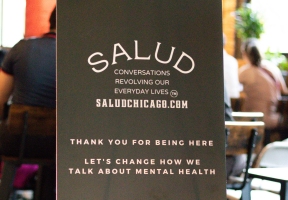California Cuts Healthcare Access for Immigrants to Close $12 Billion Budget Gap

California Governor Gavin Newsom has signed a revised budget aimed at closing a significant $12 billion deficit. A key component of this budget reduction involves limiting healthcare access for undocumented immigrants. This decision has sparked considerable debate and concern among advocates for immigrant rights and healthcare providers.
The Budgetary Challenge and the Difficult Choices
California has long been a state known for its progressive policies, including providing healthcare services to undocumented residents. However, a combination of factors, including slowing tax revenues and increased spending demands, has created a substantial budget shortfall. Faced with this challenge, Governor Newsom and the state legislature had to make difficult decisions to balance the budget without raising taxes or significantly cutting essential services for other populations.
“This was not an easy decision,” Newsom stated in a press conference. “We’ve always strived to provide a safety net for all Californians, but the current fiscal reality requires us to prioritize and make tough choices. We’ve explored every avenue to avoid impacting vulnerable populations, but ultimately, these adjustments were necessary to ensure the overall stability of the state budget.”
Impact on Healthcare Access
The new budget restricts access to certain healthcare services for undocumented immigrants, particularly those not considered emergency care. Specific programs that will see reductions include preventative care, dental services, and vision care. The extent of the cuts varies depending on the program and the geographic location within the state. Advocates argue that these cuts will disproportionately affect low-income individuals and families, leading to poorer health outcomes and increased reliance on emergency rooms for preventable conditions.
“These cuts are devastating and short-sighted,” said Maria Rodriguez, Executive Director of the California Immigrant Advocacy Coalition. “Denying healthcare to vulnerable individuals not only harms them directly but also creates a public health risk for everyone. Preventative care is far more cost-effective than treating serious illnesses that could have been avoided.”
Political and Social Ramifications
The decision to curtail healthcare access for immigrants has drawn sharp criticism from Democratic lawmakers and advocacy groups. Republicans, while generally supportive of fiscal responsibility, have also raised concerns about the potential impact on the state’s healthcare system. The issue highlights the ongoing tension between providing social services and maintaining fiscal stability in California.
The long-term consequences of these budget cuts remain to be seen. Experts predict that the reduced access to healthcare could lead to increased rates of chronic disease, higher emergency room utilization, and a greater strain on the state’s social safety net in the future. The debate over healthcare access for undocumented immigrants is likely to continue as California navigates its ongoing budgetary challenges.
Looking Ahead
California’s situation serves as a cautionary tale for other states facing similar budgetary pressures. It underscores the complex challenges of balancing social responsibility with fiscal realities. As the state economy evolves, policymakers will need to find innovative solutions to ensure that all residents have access to essential services while maintaining a sustainable budget.





